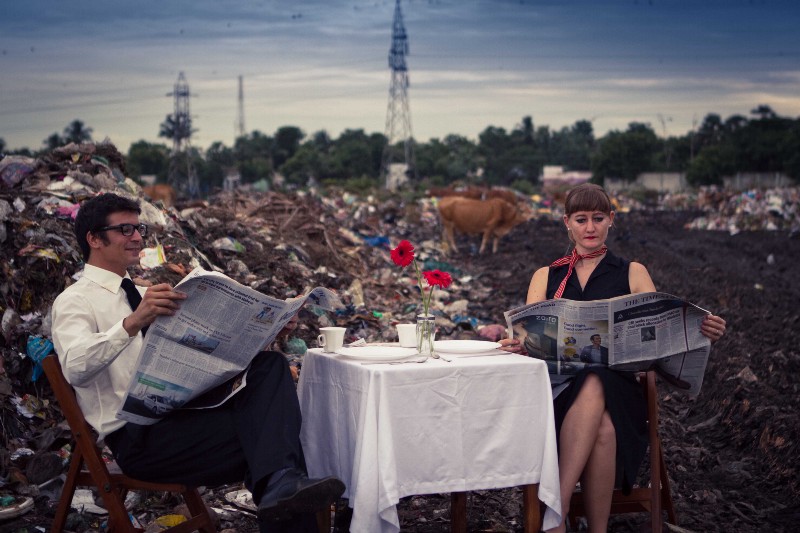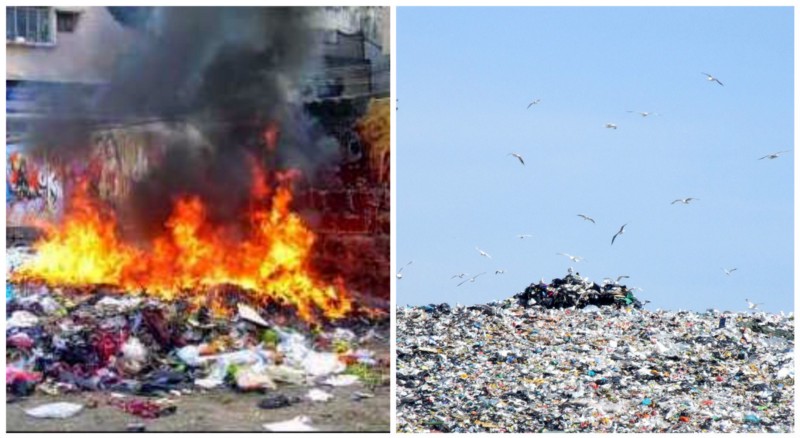Is Biodegradable Plastic An Eco-Friendly Alternative To Traditional Plastic?

From grocery bags and furniture to toys and pipes, the manufacture and use of plastic has assumed inexorable proportions and it is ubiquitous. The amount of plastic produced annually weighs roughly as much as all humans on Earth combined and unless effectively recycled, ends up as microscopic grains in the ocean, and thereby in the food chain. An array of carcinogenic, neurotoxic, and hormone-disrupting chemicals (vinyl chloride, dioxins, benzene, BPA etc.) are used in plastic manufacture or emitted as byproducts of it.
The world is slowly waking up however, to the damaging effects of plastic use and its improper disposal on our health and that of the environment. In a few Indian states, the manufacture of polythene bags has been banned and disincentives or penalties are in place for their sale and use. Public awareness campaigns to promote better urban solid waste management, with efforts like waste segregation at source are also being stepped up.
In the face of a prominent public movement against conventional plastics, an alternative in the form of biodegradable plastics has begun to emerge in the Indian market. But, doubts about their authenticity, safety, degradability and compostability, and cost persist.
Eartha spoke to Mayank Chouhan, founder of Green Plastics, one of the few manufacturers of biodegradable plastics in India about the common concerns around them and the challenges faced in developing a truly sustainable alternative to conventional plastic.
Eartha: What is biodegradable plastic?
Mayank: Biodegradable plastic is compostable and degradable by microbial action. It has been developed to decay naturally in open environment and landfills within 180 days of disposal without any high heat industrial composting machines. The technology used to make biodegradable plastics is called Enzyme-Based Chain-End Degradation Technology. It makes synthetic polymers (Polyethylene types HDPE and LLDPE) biodegradable by micro-organisms without altering their physical properties. The technology uses a formulation of enzymes, proteins, bacteria, and other biochemical agents drawn mainly from natural sources and medicinal plants. These agents act on the polyethylene enabling it to undergo a change in its chemical composition when exposed to environmental conditions, in soil or compost. The carbon-hydrogen long chain breaks up with carbon releasing as carbon dioxide and hydrogen as water. Biodegradable plastic is used primarily for industrial packaging films, liner bags, garbage bags, bubble wrap, shrink films, and carry bags.
E: Does biodegradable plastic completely decompose?
M: Plastic produced using Enzyme-Based Chain-End Degradation Technology does not just degrade, it also decomposes. It undergoes microbial biodegradation which means the polymers it contains are decomposed solely by living organisms like bacteria occurring naturally in the environment. This biological process breaks down the polymer to yield CO2, water, and biomass, leaving behind no visible, distinguishable or toxic residue. Degradation occurs just as it does in the case of cellulose or paper.
However, biodegradable plastics are of different types: oxo-degradable plastics only disintegrate into smaller particles while Poly Lactic Acid (PLA) or starch based plastic decompose only when subjected to high heat in industrial composting machines.
E: How long does decomposition of biodegradable plastic take?
M: Currently, there are 2 types of biodegradable plastics produced with Enzyme-Based Chain-End Degradation Technology - one that decomposes in 2 years and another that decomposes in 180 days. Both begin to decompose as soon as they reach the soil or a landfill.
What remains of biodegradable plastic after decomposition
E: How is this different from what happens to conventional plastic?
M: Conventional plastic takes millions of years to decompose. Moreover, fillers like Calcium Carbonate are commonly used in its manufacture which render it incapable of decomposing or being recycled. Such plastics, example garbage bags, only disintegrate into microscopic particles.
E: Can biodegradable plastics be composted in home composting units?
M: Plastics produced using Enzyme-Based Chain-End Degradation Technology are best composted in the soil/ open garden pits/ landfills where they will decompose quickly. It is not recommended to add them to home composting bins or containers.
E: What category of waste does biodegradable plastic qualify as?
M: If mixed with organic (wet) waste, a biodegradable plastic bag will decompose along with the waste, but they may decompose at different rates. If disposed as plastic (dry) waste, it can be recycled so long as it is in recyclable condition and not contaminated by wet waste.
E: What are the advantages of biodegradable plastics over conventional plastics?
M: The Enzyme-Based Chain-End-Biodegradation technology and manufacturing process are non-hazardous and non-toxic. Biodegradable plastic itself is cost-effective and available in large quantities since it uses domestically produced raw material. Its decomposition leaves behind no toxic residue, so it is not a threat to the marine eco-systems or to the global food chain. It can also be recycled with existing plastic recycling machinery available in India. However, it has the same physical properties — elasticity, tensile strength, melting point etc. as conventional plastic.
E: What is the difference between biodegradable plastic and bioplastic?
M: Bioplastics or bio-based plastics are made of Poly Lactic Acid (PLA) derived from plant-based resources, such as corn/ tapioca starch. It is popular in the US which grows huge quantities of corn. In India, the raw material for bioplastic is imported, making it more expensive than biodegradable plastic. The industrial technology used to make bioplastic does not allow for microbial biodegradation. It can only be composted at very high temperatures in industrial composting machines.
E: How can consumers be sure that plastics they are buying are actually biodegradable?
M: If a biodegradable plastic product has been manufactured using Enzyme-Based Chain-End Biodegradation technology, it will decay naturally. Testing protocols like EN 13432 (implemented in Europe at a national level) and ISO 14855 confirm the aerobic biodegradability of plastic, the loss of visibility in the final compost (absence of visual pollution), and absence of negative effects on the composting process and the final compost. Ideally, all biodegradable plastic products should carry this information for the benefit of consumers and municipal waste authorities.
E: Is biodegradable plastic a suitable alternative to traditional plastic?
M: Millions of tons of plastic are produced every day under less than satisfactory industrial, labour, and environmental conditions and this might continue unchecked for years to come. Biodegradable plastic is a solution that addresses the current problem of plastic manufacture, usage, and disposal by giving people an alternative that is eco-friendly and cost-effective. However, this technology is of little use unless there are concomitant efforts to reduce plastic pollution with stringent industry norms, effective solid waste management rules, and strictures on manufacturers of bio-plastics masquerading as biodegradable plastic.
Maya is a social researcher by training. Her writing has appeared in Scroll, YourStory and The Alternative. She is the Founder of Eartha and tweets @Maya_Kilpadi.







